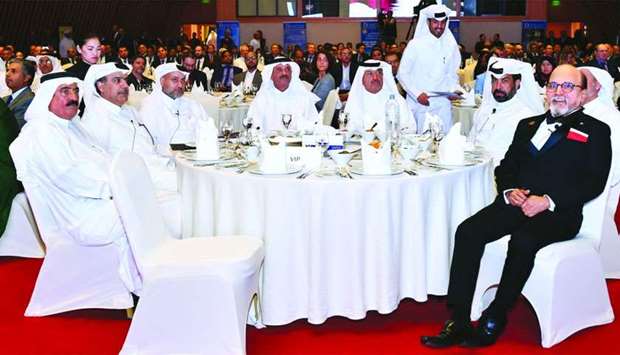Confidence in Qatar’s economy remains strong despite the economic blockade imposed on the country in June 2017 as capital investments saw a 72% jump in the first six months of 2019, according to Qatar Financial Centre (QFC) CEO Yousuf Mohamed al-Jaida.
Al-Jaida made the statement on Sunday during Doha Bank’s knowledge sharing session titled "Qatar – Land of Opportunities", which also showcased presentations from Doha Bank CEO Dr R Seetharaman, Qatar Stock Exchange CEO Rashid Ali al-Mansoori, Just Real Estate chairman Nasser al-Ansari, and Gulf Organisation of Research and Development founding chairman Dr Yousef al-Horr.
Al-Jaida said that despite the blockade, Qatar attracted over $1.5bn worth of capital investments from 22 countries resulting in more than 60 projects. He said foreign direct investment (FDI) inflows in 2018 stood at $533.5mn and climbed 72% to reach $919.5mn in H1 2019.
“Every single legal improvement that we’ve seen in the past year during the blockade only indicates that the government is prioritising foreign direct investments at no other time in our past history, and we expect these numbers to grow,” al-Jaida pointed out.
In terms of FDI outflow, al-Jaida said the blockade did not have any negative impact on the Qatar Investment Authority’s (QIA) strategic investments in the US and Europe.
“QIA is forging ahead with its strategic investments in the US and Europe. In January 2019, QIA announced plans to raise investments in the US to $45bn in the next two years from around $30bn.
“QIA is looking to balance investment, so the US level is closer to that in Europe. Similarly, Qatar announced plans of investing additional €10bn in Germany with total investment aimed at €35bn,” al-Jaida said.
In his keynote speech, Seetharaman said Qatar’s overall GDP growth is projected to reach 2.6% in 2019 and that Qatar’s banking sector “remains sound.”
“Foreign liabilities withdrawn in the immediate aftermath of the diplomatic rift have been partially replaced with greater attention being paid to the diversity of funding sources and deposit maturity structure,” Seetharaman noted.
Citing the speech on climate change delivered by His Highness the Amir Sheikh Tamim bin Hamad al-Thani at the 74th session of the UN General Assembly, Seetharaman said climate change is also one of the key challenges faced by the global economy and that Qatar has emphasised sustainable development as part of the Qatar National Vision 2030.
Meanwhile, al-Mansoori said as part of its four key strategies, the QSE aims to increase its offering in the stock market, such as more listings, among others; to enhance smarter regulation “and not just harsher regulation” to make Qatar a more desirable place for international investment; to have a more active local asset management in the market; and to promote the market further to increase awareness through roadshows and other marketing initiatives.
For his part, al-Ansari said after the blockade Qatar has taken “many measures to become more resilient to avoid any potential crisis.”
“The government has opened up doors for international companies to own offices and real estate. And it has taken measures that would enhance the welfare of expats and Qataris, thereby generating more jobs and creating a favourable environment for more white-collar expats to come to Qatar,” al-Ansari said.
Al-Horr, in his presentation, said Qatar has become an active partner in the international community for climate change by seeking to regulate carbon pricing as a means of reducing emissions and driving investments towards cleaner options.
“It is also organising an environment-friendly tournament and the first ‘carbon neutral’ tournament. Qatar’s sovereign wealth fund will promote and encourage green investments activities and adopt low-carbon economic growth,” al-Horr said.


